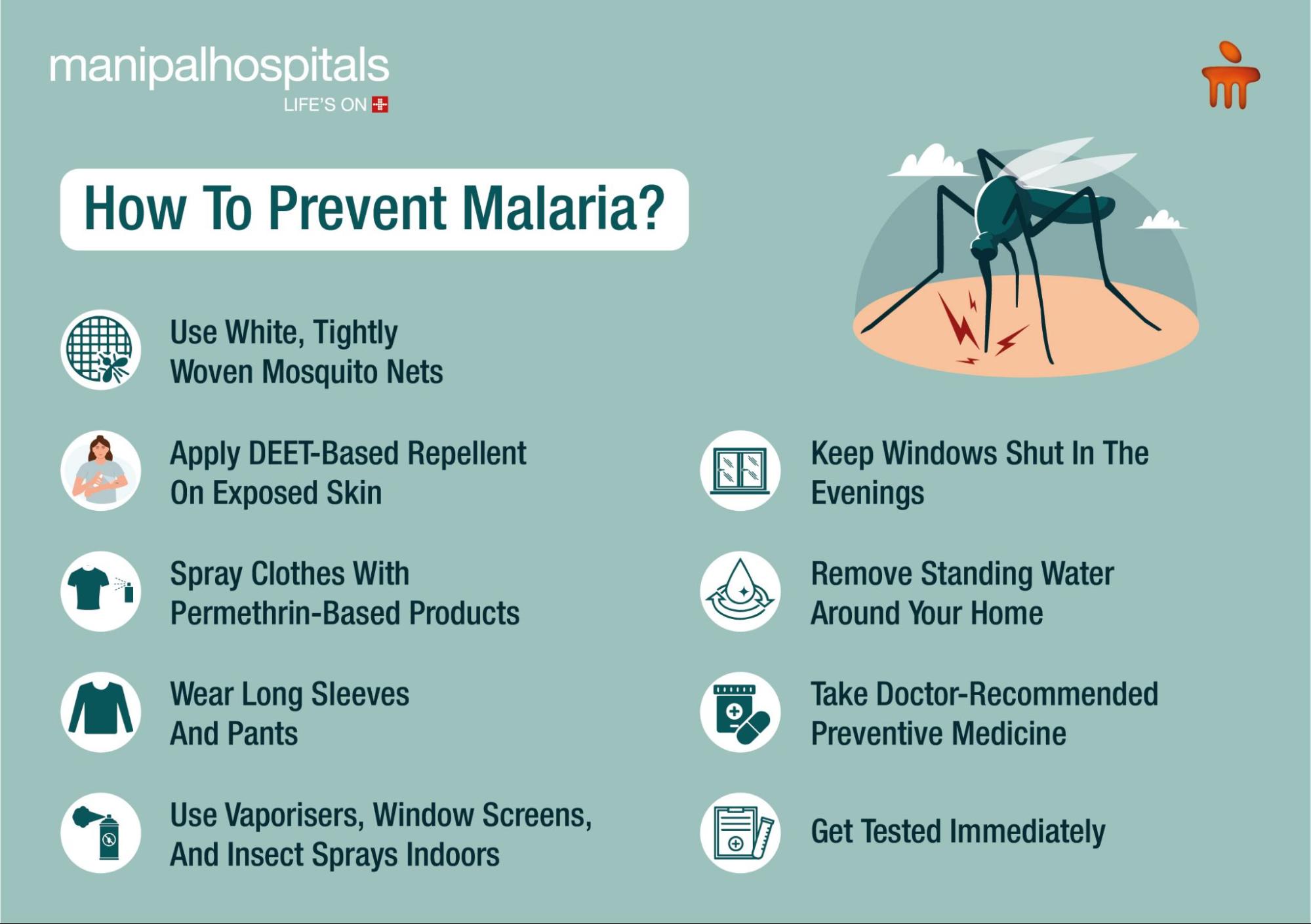World Malaria Day is observed every year on April 25 to remind us of the need for sustained support and action to prevent and control malaria. The broader and long-term aim is to create a malaria-free world, where no lives are lost to this disease.
Malaria is a serious disease spread by certain mosquitoes and is mostly found in tropical areas. According to the latest World Malaria Report, there were an estimated 263 million malaria cases in 2023.1 It has long been a major public health issue in India. Despite many challenges, the country has made great progress over the past 20 years in the fight to eliminate the disease.
In this blog, we explore the theme of World Malaria Day and take a closer look at malaria—its symptoms, treatment options, and ways to prevent the disease.
Synopsis
Theme for World Malaria Day 2025
This year’s theme for World Malaria Day is “Malaria Ends With Us: Reinvest, Reimagine, Reignite.” This powerful message supports a grassroots campaign aimed at renewing efforts at every level, from international policy to local community action, to speed up progress toward a malaria-free world.
The theme emphasises the urgent need for continued investment, fresh ideas, stronger collaboration, and steady commitment from the global malaria community. It is a call to action, reminding us that ending malaria is possible, but only if we work together with renewed energy and purpose.
Know More About Malaria
Malaria is a serious illness caused by Plasmodium parasites, spread to humans through the bites of infected female Anopheles mosquitoes, also known as malaria vectors. There are five types of parasites that can cause malaria in humans, but P. falciparum and P. vivax are the ones that cause the most concern.
A mosquito becomes infected when it bites a person carrying the malaria parasite. If that same mosquito bites a healthy person, it can transmit the parasite into the person's bloodstream, where it starts to multiply. In some rare instances, malaria can be passed from a mother to her baby during pregnancy or childbirth. Although it is not common, malaria can also spread through blood transfusions, organ transplants, or contaminated needles.
Symptoms of Malaria
Malaria symptoms typically show up between one week and one month after infection. However, in some cases, people may not feel sick until a year or more after being bitten by an infected mosquito. Symptoms include:
-
Fever and flu-like symptoms
-
Chills
-
Nausea, vomiting, and diarrhoea
-
Persistent and throbbing headaches
-
Extreme fatigue
-
Joint pain
In severe cases, patients may experience jaundice, cola-coloured urine, difficulty breathing, confusion or altered mental state, seizures, kidney failure, and bloody stools.
What Are the Treatment Options for Malaria?
Antimalarial medicines can cure malaria by clearing the infection from your body, but it's crucial to begin treatment as early as possible. If not treated properly, malaria can lead to serious problems like organ damage or even death. Your doctor will choose the right medicine based on the type of Plasmodium parasite, since some parasites may resist certain drugs.
Common malaria medicines include artemether, artesunate, chloroquine, doxycycline, and primaquine. After treatment, it is important to keep protecting yourself from mosquito bites. Even if you have had malaria before, you can get it again if bitten by an infected mosquito.
Prevention of Malaria

Prevention is key to combating malaria. For effective protection against mosquitoes and malaria, follow these tips:
-
Use tightly woven, white mosquito nets and make sure they are securely tucked under the mattress.
-
Apply insect repellent containing DEET to exposed skin after dusk, and treat clothes with permethrin-based sprays.
-
Wear long-sleeved shirts and pants, ideally tucked into socks—especially important for children playing outdoors in the evening.
-
Reduce mosquitoes indoors by using electric vapourisers, installing window screens, and spraying your bedroom with pyrethrin or similar insecticides before bedtime.
-
Keep windows closed in the evening to stop mosquitoes from entering.
-
Eliminate standing water around your home, such as in potholes, plant pots, garbage areas, and construction sites, to prevent mosquito breeding.
-
If you are travelling to a malaria-prone area, take preventive medication as recommended by your doctor.
-
If you experience a fever along with severe chills that require 2–3 blankets, get tested immediately, as this could be a sign of malaria.
Conclusion
World Malaria Day highlights the need to keep fighting malaria. This year’s theme, “Malaria Ends With Us”, calls for stronger efforts toward a malaria-free future. Understanding malaria, its symptoms, treatment, and prevention can help reduce the risk. At Manipal Hospitals, Mukundapur, we provide advanced malaria treatment and educate you on prevention strategies.
FAQ's
If left untreated, malaria can cause anaemia, low blood sugar levels, pulmonary oedema, organ failure, and cerebral malaria.
Malaria is spread through the bite of infected female Anopheles mosquitoes, which carry the Plasmodium parasite. When a mosquito bites a person, it injects the parasite directly into their bloodstream.
Vector transmission is the primary mode of transmission where the infection spreads by a vector, such as mosquitoes carrying diseases like malaria, from one person to another.
On average, symptoms appear between 10 days and 4 weeks after infection. However, some individuals may start showing symptoms as early as 7 days or as late as 1 year. In some cases, certain malaria species can cause relapses up to 5 years after the initial infection.
Anyone can get malaria, but people who live in or travel to areas where malaria is common are at higher risk of contracting the disease.





















 6 Min Read
6 Min Read


















